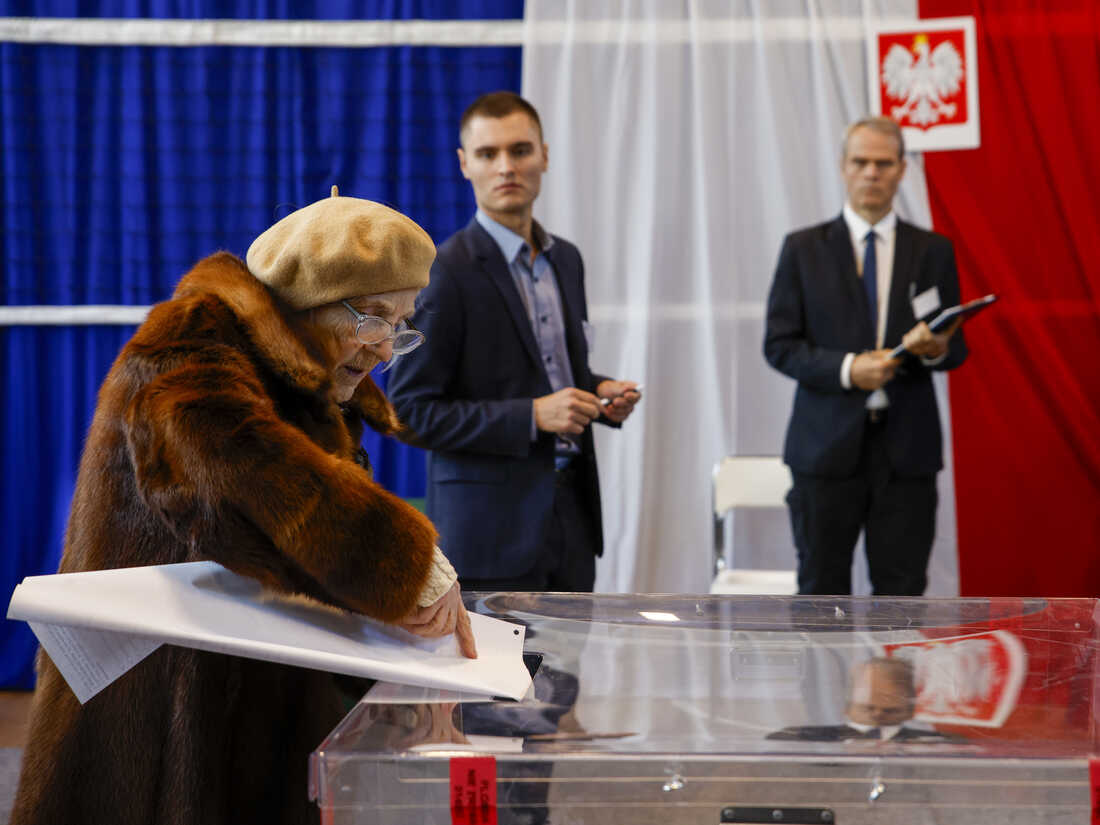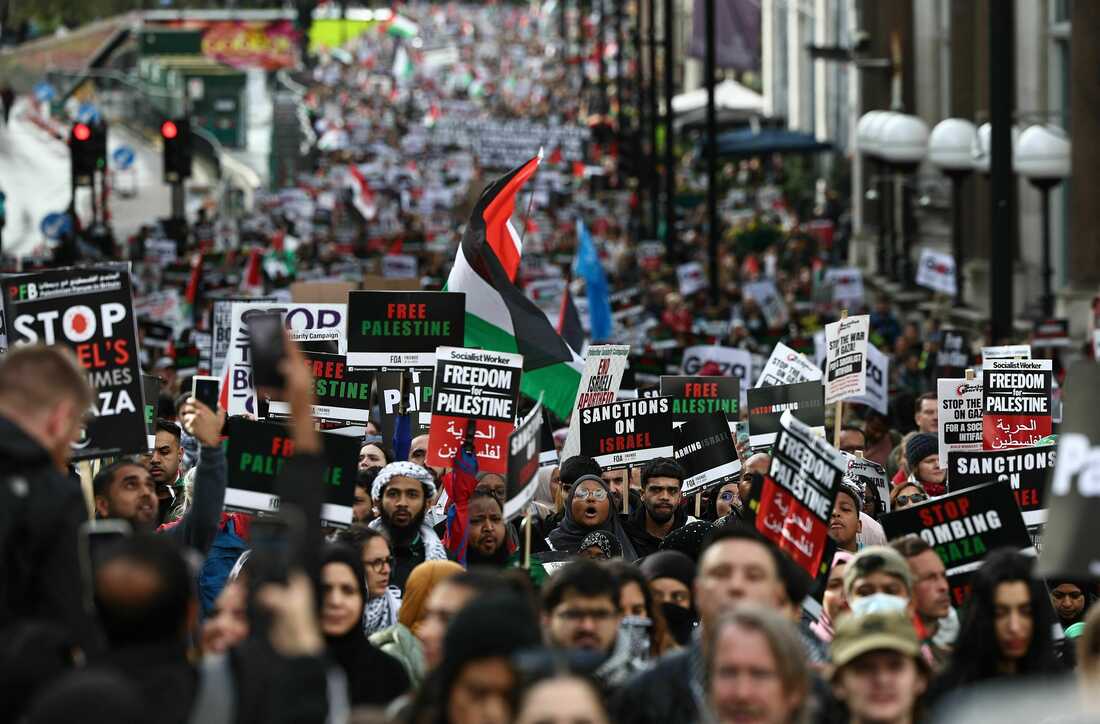Poland votes in an election seen as the most important of its 3-decade old democracy
By The Associated Press
A woman casts her ballot during parliamentary elections in Warsaw, Poland, on Sunday, Oct. 15, 2023. The outcome of the election will determine whether the right-wing Law and Justice party will win an unprecedented third straight term or whether a combined opposition can win enough support to oust it. Michal Dyjuk/AP hide caption
toggle caption Michal Dyjuk/APA woman casts her ballot during parliamentary elections in Warsaw, Poland, on Sunday, Oct. 15, 2023. The outcome of the election will determine whether the right-wing Law and Justice party will win an unprecedented third straight term or whether a combined opposition can win enough support to oust it.
Michal Dyjuk/APVoters in Poland were choosing on Sunday between the governing party and a coalition of opposition groups that accuse the conservative nationalists of eroding the country's 34-year-old democratic system.
Many Poles feel it is the since 1989, when a new democracy was born after decades of communism. At stake are the health of the nation's constitutional order, its legal stance on LGBTQ+ rights and abortion, and the foreign alliances of a country that has been a crucial ally to Ukraine after Russia launched its full-scale invasion.
Supporters of the governing Law and Justice party say they appreciate its defense of Catholic traditions and its spending on retirees and families with children in the Central European nation of 38 million people.
The opposition parties Civic Coalition, Third Way and New Left have campaigned on promises to repair the rule of law and ties with the European Union and other allies if they manage to gain power. The final outcome of the vote could be ultimately decided by the margins gained or lost by the smaller parties.
Law and Justice could need the support of the far-right Confederation party to govern, but both parties have said that scenario wasn't an option.
Civic Coalition leader Donald Tusk, the former prime minister, was cheered by a large crowd when he voted in Warsaw, with people snapping photos and wishing him good luck. The Law and Justice leader, Jaroslaw Kaczynski, also voted in the Polish capital.
Others see economic threats in the way the party has governed and believe that high social spending has helped to fuel inflation.
There is also a high level of state ownership in the Polish economy, and the governing party has built up a system of patronage, handing out thousands of jobs and contracts to its loyalists.
The EU, whose funding has driven much of the economic transformation, is also withholding billions in funding to Poland over what it views as democratic erosion.
Political experts say the election won't be fully fair after eight years of governance by Law and Justice.
Retired nurse Barbara Burs voted early in Warsaw, saying she cast her vote to change the government, because she wants a better country for her children and grandchildren — a "just and undivided Poland."
The fate of Poland's relationship with Ukraine is also at stake. The Confederation party campaigned on an anti-Ukraine message, accusing the country of lacking gratitude to Poland for its help in Russia's war.
While Poland has been a staunch ally of Ukraine and a transit hub for Western weapons, relations chilled over the Ukrainian grain that entered Poland's market.
Around 29 million Poles from age 18 are eligible to vote. They are choosing 460 members of the lower house, or Sejm, and 100 for the Senate for four-year terms.
A referendum on migration, the retirement age and other issues is being held simultaneously. Opposition groups oppose the referendum, accusing the government of seeking to tap into emotions to mobilize its electorate in the close and unpredictable race. Some called on voters to boycott the referendum.
At one polling station on the southern edge of Warsaw, people could be seen apparently declining to vote in the referendum, casting just two ballots into the assigned boxes. Voters were offered three ballots, one for the Sejm, one for the Senate and one for the referendum.
More than 31,000 voting stations operated across Poland, while there were more than 400 voting stations abroad. In a sign of the emotions generated by the vote, more than 600,000 Poles registered to vote abroad.
On Friday, the Foreign Ministry fired its spokesman after he said that not all the votes cast abroad could be counted before the deadline for submitting them, which would cause them to be invalidated. The ministry said he was dismissed for spreading "false information."
The turnout was more than 57% at 5 p.m. (1500 GMT), with four hours of voting left to go. That was significantly above the 46% at the same time in the 2019 vote, the National Electoral Commission said.
It appeared that Poles could surpass the record turnout of 63% achieved in the 1989 election that sealed the end of the communist leadership.
Exit poll results by global polling research firm Ipsos will be announced after polls close. Final results were expected Tuesday, the electoral commission said.
Individual parties need to get at least 5% of votes to win seats in parliament, while coalitions need at least 8% of votes.



